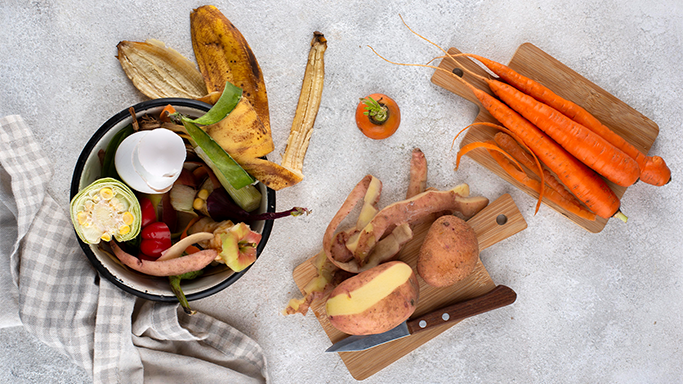Repurposing Food Waste Benefits the Agri-Food Sector
Introduction
The issue of food waste is a global concern, exacerbated by its contribution to climate change and the threat it poses to food security. Recently, the United Nations observed its fourth International Day of Awareness of Food Loss and Waste, underlining the urgency of addressing the problem. Canada is also taking action, dedicating October to Circular Economy Month, highlighting the importance of finding innovative ways to reduce food waste. At the heart of these initiatives is a focus on food waste reduction.
Why Food Waste Reduction Matters
Food waste not only carries ethical implications but is also a major source of the potent greenhouse gas, methane. When food ends up in landfills, it decomposes and emits methane, exacerbating climate change. In Canada, it's estimated that nearly 60% of produced food is wasted, intensifying this environmental challenge. However, there's a growing movement that aims to combat food waste by repurposing it.
Innovations in the Canadian Agri-Food Industry
Canada's agri-food sector is actively addressing the Food Waste Reduction challenge. The federal government introduced the Food Waste Reduction Challenge earlier this year, offering grand prizes worth up to $1 million each for innovative solutions to reduce food waste.
One notable example is Chinova Bioworks, a New Brunswick-based company that has developed Chiber, a natural product that improves the quality, freshness, and shelf-life of food and beverage products. What's unique about Chiber is that it's made from dietary fiber extracted from white button mushroom stems, which were traditionally discarded as waste.
Repurposing Waste Streams
Researchers at the Vineland Research and Innovation Centre have examined waste streams and by-products in fresh produce. Their report identified untapped potential opportunities for some of Canada's most produced fruit and vegetable crops, including potatoes, apples, field tomatoes, greenhouse tomatoes, cucumbers, onions, and carrots.
The report revealed that vegetable and fruit processing generates substantial waste rich in nutritional and functional compounds. By employing processes like drying, milling, extrusion, or other methods, these by-products can be repurposed and utilized by food manufacturers. For instance, apple pomace can be repurposed as a thickener and source of added fiber, and even natural apple enzymes can replace microbial enzymes used in bread production.
Innovative Companies Leading the Way
One Canadian company, Crush Dynamics Inc. in British Columbia, is a trailblazer in the upcycling movement. Located close to Okanagan Valley's wine producers, Crush Dynamics has patented technology to upcycle grape pomace and other waste streams into ingredients designed to help food manufacturers reduce the sodium and sugar content in their products.
Crush Dynamics' Ruby Purée and Gold Purée are functional ingredients already available on the market. These products are compatible with various formulations, such as sauces, chocolate, plant-based dairy, chicken alternatives, and more, offering a healthier and sustainable option for consumers.
Conclusion
The drive towards food waste reduction is gaining momentum in the agri-food sector, driven by its environmental benefits and the potential for economic opportunities. Canada's efforts, such as the Food Waste Reduction Challenge, combined with innovative solutions from companies and research institutions, are shaping a more sustainable and resilient agri-food sector. As the world becomes more aware of the need to reduce food waste, these initiatives will continue to gain momentum and drive positive change.



